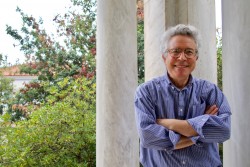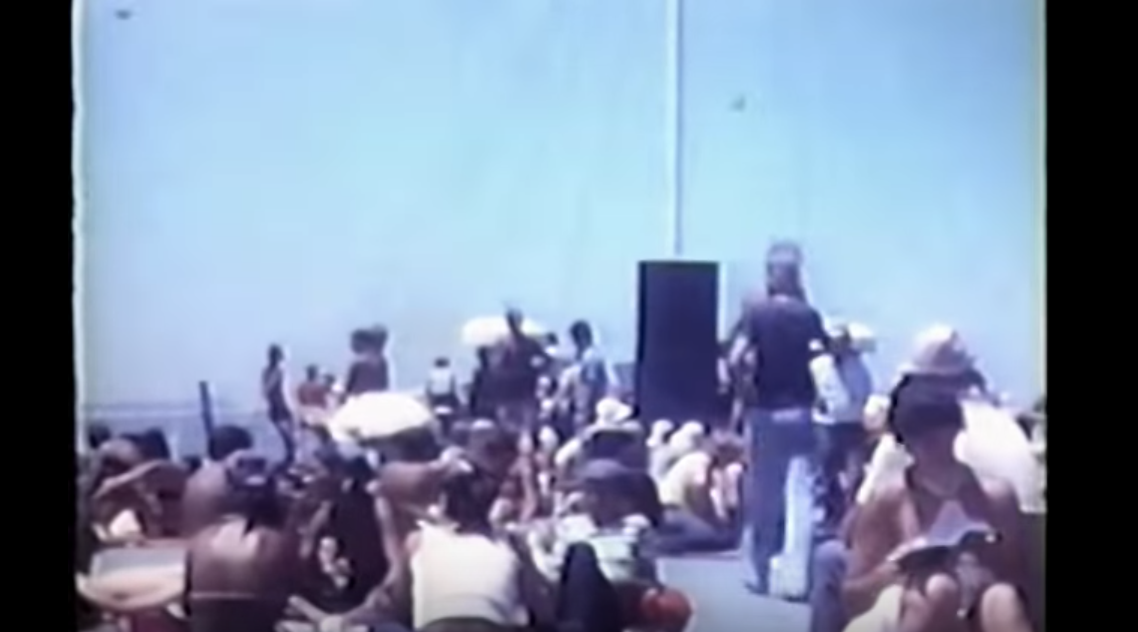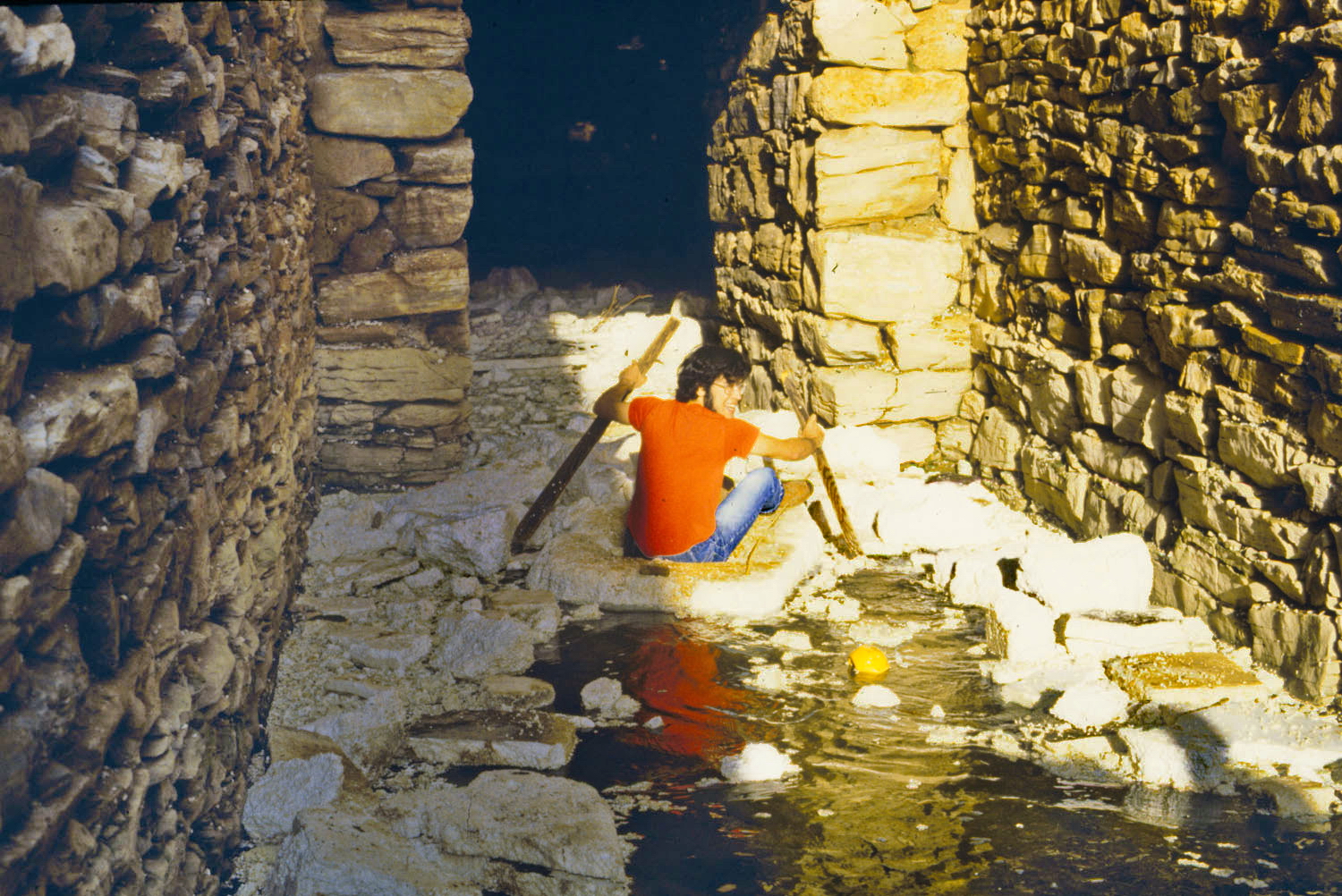An Interview with Daniel B. Levine, 2018 Gertrude Smith Summer Session Director

Each summer the American School of Classical Studies at Athens offers an unparalleled opportunity for graduate students, advanced undergraduates, and faculty from any accredited institution of higher education, and primary and secondary school teachers to experience Greece’s history and culture. After having participated in the Summer Session of 1974 and returning to the School this year for his fourth tenure as the Gertrude Smith Summer Session Director, Daniel B. Levine, Professor of Classical Studies at Fulbright College, University of Arkansas, understands better than anyone how a summer with ASCSA can create memories and build relationships that last a lifetime.
Introduced to Greece in 1973, Daniel B. Levine recalled immediately falling in love with the country on a trip with his grandparents. “I was 19-20 years old. We went to Epidavros and Mycenae and we even saw the Oresteia in the Herodes Atticus Theatre,” said Levine. “After my grandparents went home they had arranged for me to stay and fly off to Lindos, Rhodes. It was there that I met a few Greek soldiers who took me under their wing. I remember frequently writing down words they taught me and dancing at the disco. That was my first great experience with Greece.”
Levine, who was completing his undergraduate degree in Greek and Latin at the University of Minnesota at the time, visited Greece again the following year through the ASCSA 1974 Summer Session. It was Levine’s initial exposure to the School and when talking about it even today, it brings about an emotional response. “The junta fell while we were in the middle of our Summer Session,” said Levine. “We were on Mykonos walking from our hotel to get on a little boat to Delos. Once we arrived at the waterfront they said there were no boats, there’s going to be a war.” Levine documented this immense historical moment in a collection of recorded videos from his Summer Session, which he has posted to YouTube. “When they decided it was safe a big freighter came to get tourists and foreigners from the islands. They picked us up and when we got back to Piraeus the program went on.”

Tourists on the boat back to Athens after fall of Junta, 1974.
In recalling his Summer Session, Levine went on to discuss a few more of his most memorable experiences while at the American School. After enrolling in a Ph.D. Classics program at the University of Cincinnati, Levine returned to ASCSA as a Regular Member for the 1978-1979 academic year. “In the spring of 79 we had a Passover Seder here at the School. My father, a rabbi, with my mother and youngest brother came to visit me and Nikos Stavroulakis, founder of the Jewish Museum, found us matzos and kosher wine. The Loring Hall staff made a big Passover dinner. It was just lovely.”
Most recently, Levine was reminded of his Regular year while joining current ASCSA Members on a day trip to the Menidi tholos tomb. “When I was a student it was flooded,” said Levine. “But I had navigated my way in with a styrofoam “boat” that we found there. It was sort of known in my year that if there was a hole I would crawl through it.”

Levine on the styrofoam "boat" at the Menidi tholos tomb. William Murray, Regular Member (1978-79).
Being an adventurous spirit, Levine will certainly expose 2018 Summer Session participants to his unique perspective on Greece. As a self-identifying cave lover and explorer, Levine is most looking forward to leading the group to the Franchthi Cave. “It is my 21st visit to Greece this year and I’ve never been before,” said Levine with excitement. The cave, located in southeastern Argolis, Peloponnese, is logistically difficult to visit and, because of this, it is rarely planned in the Summer Session itinerary. “The most important thing about being a Summer Session Director is having a good schedule. Keeping the program on time, the participants well rested, and making sure everyone is on the bus ready to go the next morning.”
This will be Levine’s fourth time as Summer Session Director and while he is no stranger to the difficulties of coordinating the program, Levine also knows how much participants appreciate all it has to offer. “Ιn 1995 our group motto was ‘We Go Behind the Ropes,’ based on the fact that the School gained entry for us to places where others are not allowed. A talented Member designed a great t-shirt logo, accompanied by the ancient Greek semi-equivalent of our motto: ὑπερβαίνοντες τοὺς δεσμούς. I still wear that shirt, which sums up the Members’ pride to be associated with the American School.”
Combining his expertise with his passion for the program, Levine hopes to one day compile a history of ASCSA Summer Sessions. “The Summer Session has made a big difference in a lot of people’s lives, professionally. It would be nice to get a collection of those stories together and see how attending their Session affected him or her. But that project will have to wait until I retire,” laughed Levine.

Levine in the Blegen Library, February 2018.
Currently Levine is on sabbatical for the spring semester and has been working at the School utilizing the Blegen Library for his research. “I came up with this theory that I’m testing called ‘When do Ancient Greek Dancers Wear Shoes?’ I’ve been looking at vases of dancers and the evidence points to vases that were made for an audience in Greece proper show dancers barefoot while those exported to Sicily and south Italy show Greek dancers wearing sandals,” explained Levine. “I even found a little book called Depictions of Etruscan Dancers A Comparison from 1956. In it Mary Anderson Johnstone says Etruscan dancers always had their feet covered, which confirms what I have found so far.”
To Levine, however, the stories he can tell regarding his projects outweigh the satisfaction of affirming his research. In 2010, after reading Michael Chabon’s Pulitzer Prize winning novel The Amazing Adventures of Kavalier & Clay, Levine published an article in the International Journal of the Classical Tradition on the book’s connections to the Odyssey. “I was getting together the page proofs for the editor and I got a handwritten note from Chabon,” said Levine. “My father had given Chabon a letter I’d written about my ideas to him at one of his readings. I couldn’t believe it when he wrote back.” Levine sent a copy of the finished article to Chabon and received a second note. “Scholarship is one thing but the personal connection is what I really value and having a story like this is just as good as being right in your research.”